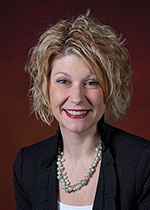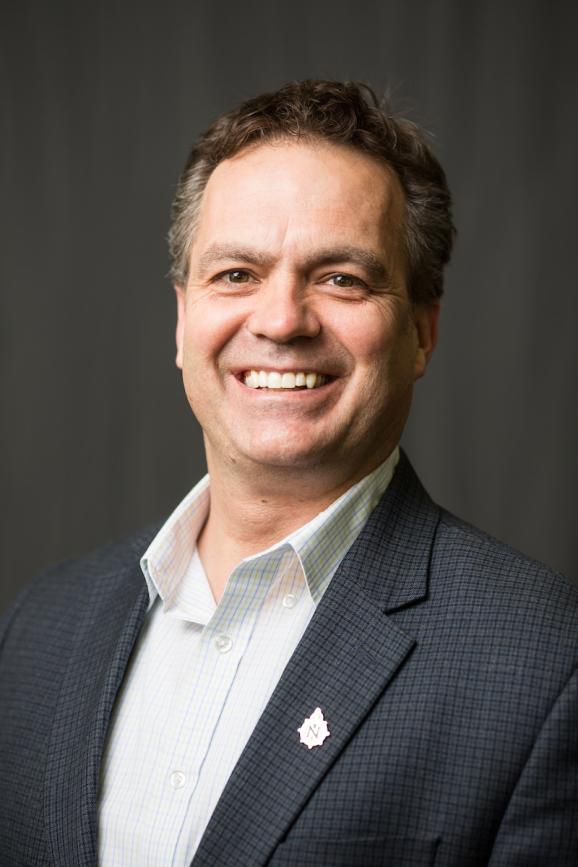
2020 Central Region Conference |
September 30 | 12:00 PM ET
The rapid transition required to maintain instruction in the spring semester brought online education into the spotlight and created new advocates and skeptics in our faculty, staff and student ranks. For some, online was found to be lacking while others now see great potential in online and hybrid modalities. Given this spotlight, we suddenly see our campuses moving away from if we teach online to how and when to capitalize on these instructional tools. For those of us that have been in the online education space for any period of time, we finally find ourselves on the cusp of institutionalization. How do we maintain this positive momentum and leverage our expertise to drive strategic advances at our institutions by reaching new markets, diversifying revenue streams and breaking down historic barriers in support infrastructure. This interactive discussion will examine best practices for developing campus advocates and engaging faculty members, providing instructional design expertise at scale and developing just-in-time technology assistance. Come with your questions, ideas and enthusiasm as we move into this new era of online education.

Dr. Jennifer Bott currently serves as the provost and vice president for academic affairs at Western Michigan University, where she leads the academic experience for 21,000 students across seven colleges. She is also a professor of management in the Haworth College of Business. Prior to joining WMU, Jen served as the Dean of the Miller College of Business and Associate Provost for Learning Initiatives, the division responsible for research and instructional and technological support for online and hybrid education. While serving as an associate provost, Jen was highly engaged with UPCEA and APLU’s personalized learning consortium. Jen received her PhD (and masters) in Industrial and Organizational Psychology from the University of Akron and her undergraduate degree in psychology and communications from DePauw University.
September 30 | 2:00 PM ET
Online Administration
Flipping classrooms is a pedagogical approach where students first explore content outside of class. In-class time is organized around student engagement, inquiry, and assessment. But can you flip an online class? Explore this topic first-hand by participating in a flipped class model. Materials below should be reviewed prior to the session, including recorded interviews, select readings, prep assignments. Session time will be spent exploring concepts of flipped online classrooms through facilitated discussion and small group activities.
 Christina Trombley, Executive Director of Online and Continuing Education, Drake University
Christina Trombley, Executive Director of Online and Continuing Education, Drake University Steve VandenAvond, Vice President for Extended Learning and Community Engagement, Northern Michigan University
Steve VandenAvond, Vice President for Extended Learning and Community Engagement, Northern Michigan UniversityLearning outcomes for this session:
- Understand the fundamental concepts of flipping the classroom
- Recognize best practices for faculty to successfully flip their classroom
- Determine strategies for encouraging faculty to incorporate flipped classrooms in their teaching
The following materials should be read and reviewed prior to the session:
- The “Classroom Flip”: Using Web Course Management Tools to Become the Guide by the Side (Baker)
- What is Flipped Learning? (Flipped Learning Network)
- Flipping the Classroom...A Goldmine of Research and Resources To Keep You On Your Feet (Gorman)
- 7 Things You Should Know About™...Flipped Classrooms (EDUCAUSE Learning Initiative)
- Gurung Interview
- Lindsey Interview
- Owens Interview
As you interact with the session content, please reflect on the following questions:
- What tools and support can you provide faculty to help them flip their classroom? What do you believe they will need to be successful in flipping their classrooms?
- How can you facilitate faculty to adopt flipped classrooms? What will need to change at your institution to adopt flipped classrooms as a best practice?
October 1 | 12:00 PM ET
The 60-year curriculum is the modern approach to a lifetime of learning. Getting a degree, getting a job and never setting foot in a classroom again are not today’s reality, as many people alive now will live to be 100 years old. That means people will have five to seven stages in their lives, not just the three traditional stages of school, work and retirement, and learning must be constant throughout our careers. Automation and changes in the workplace mean professionals must continually retool to stay relevant and competitive. Employers in every industry and profession are looking for higher education to help their workers upskill. Through dynamic conversation and audience engagement, this session will first focus on an overview of this movement and then dive deeply into what a 60-year curriculum means for UPCEA member institutions.
 Rovy Branon, University of Washington
Rovy Branon, University of Washington 
 Jerry Rhead, Michigan State University
Jerry Rhead, Michigan State University
 Moderator: Nancy Coleman, Harvard University
Moderator: Nancy Coleman, Harvard University
October 2 | 12:00 PM ET
As the marketplace continues to shift, and the demand for alternative credentials (micro-, nano-, stackable) rises, this session will cover the recently released Hallmarks of Excellence in Credential Innovation, along with the results of a recent UPCEA survey of 176 institutions on the role that alternative credentials plays in their portfolio of programs. The survey, sponsored by Mindedge, will share actionable data of those members involved in alternative credentialing efforts, in what areas, and with what results. This lively session will examine the emergent phenomenon of credential innovation as well as showcase data that undergird credential evolutions and how UPCEA member institutions are leading this charge.
 Jay Halfond, Boston University
Jay Halfond, Boston University 
October 2 | 2:00 PM ET
The year 2020 has forcefully increased our online communication and virtual connections. Yet, it has also reminded us of the deep social inequities that U.S. society faces and the renewed need for dialogue around diversity, equity, and inclusion in education. In her talk, Dr. Gretter explores ways that collaboration and interdisciplinary conversations can lead change in higher education. Drawing from the work of the Hub for Innovation in Learning and Technology at Michigan State University, she discusses the use of design practices in education to address systemic inequities and student success in the 21st century.

Dr. Sarah Gretter is the Associate Director of the Hub for Innovation in Learning and Technology at Michigan State University. She earned her Ph.D. in Educational Psychology & Educational Technology from Michigan State University, and her Ed.M. in Mind, Brain, and Education from Harvard University. Her work focuses on leading change in higher education through Learning Experience Design for student success in the 21st century.